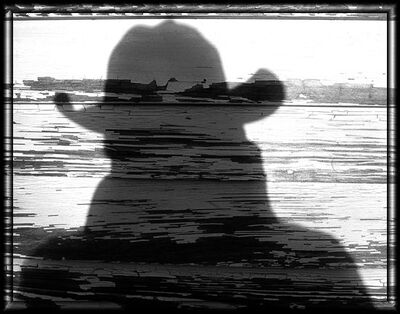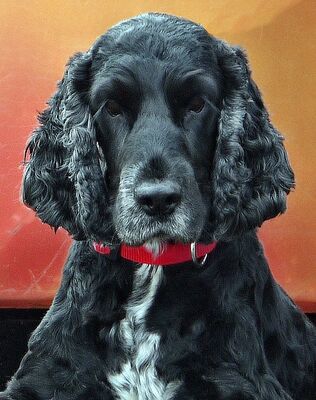Overused Phrase In Photography
Oct 18, 2019 09:08:52 #
Tomfl101 wrote:
I think the key word you used is “creatively”. A p... (show quote)
I just have to nit pick with your last 2 sentences. First if you don't use manual focus you are not full automatic. I wonder how many pros on the NFL sidelines use manual focus. I bet none. So the camera is making decisions anyway. I used full manual in my 40 year film use as my F-1 had no auto functions at all So now I use either shutter or aperture priority, depending. I find it impossible to use manual focus due to the short throw of the focus ring on todays auto focus lenses. In any situation the judge is the quality of the photo. And most likely the viewer doesen't know or care what settings were used. Do people looking at the ceiling in the Cistene Chapel ask what brush was used, and how much time each brush stroke took?
Oct 18, 2019 09:14:31 #
Oct 18, 2019 09:37:46 #
jradose wrote:
I will probably start a range war here, but, I thi... (show quote)
That's a big assumption that people shooting in manual are basing their exposure on the cameras meter, or that if they are, are centering the needle.
I guess like Chris T used to do, you attempt to create controversy by starting a thread with misinformation or off the wall assumptions. As long as you are having fun with it.



--
Oct 18, 2019 09:50:19 #
jradose wrote:
I will probably start a range war here, but, I thi... (show quote)
To decide to use a camera as you have described is in fact taking control of the image decision making process. The camera does not have the ability to make decisions, unless you are talking about some of the newer cameras that employ AI, facial recognition, etc. The camera operator is still making the decision, but the camera's "intelligence" is getting better.

Oct 18, 2019 10:22:42 #
Bill_de wrote:
That's a big assumption that people shooting in ma... (show quote)
Bill, you imply that many (most?) manual shooters do not base their exposure on the camera's meter. If not, what do they base it on? Sunny 16? Histogram?
Don't many (most?) manual shooters look at the camera's meter suggested exposure and then adjust the settings from there, i.e., they use the meter reading as a starting point?
If so, in terms of exercising control, how does that differ from using a "semi-automatic" mode and overriding the metered exposure using Exposure Compensation?
Oct 18, 2019 10:44:31 #
No one has even mentioned checking to see just HOW an image looks after all of the intelligent decisions have been made; irregardless of whether you are using manual, aperture, shutter, sunny sixteen, histogram etc. the proof of the pudding is ascertaining whether or not the final image is close to what YOUR vision thinks it should look like. Anyone of the above mentioned techniques works but don't get stuck in a technical rut. Adjust, compensate etc. to get the look YOU want which may or may not be 100% meter correct.
Oct 18, 2019 10:55:06 #
srt101fan wrote:
Bill, you imply that many (most?) manual shooters ... (show quote)
Another thing to consider when shooting manual and using the camera meter - what mode to you use and where do you take a reading. You can use spot metering and try to find something approximating 18% gray, or take readings from the shadows and highlights and set it in-between somewhere. Even using matrix metering you can avoid large dark or light areas which could fool the meter. Those kind of metering techniques make manual metering different than just letting the camera meter whatever is in the frame.
Oct 18, 2019 11:00:30 #
boberic wrote:
I just have to nit pick with your last 2 sentences... (show quote)
"Do people looking at the ceiling in the Cistene Chapel ask what brush was used, and how much time each brush stroke took?"
Only those who recognise the skill of the artist and wish to emulate him.

Oct 18, 2019 11:12:20 #
JohnSwanda wrote:
Another thing to consider when shooting manual and... (show quote)
And that depends on how much detail is in the frame, e.g. a building with sun light to the side.

Oct 18, 2019 12:34:21 #
jradose wrote:
I will probably start a range war here, but, I thi... (show quote)
Is your name Chis by chance?
Oct 18, 2019 12:39:27 #
jradose wrote:
I will probably start a range war here, but, I thi... (show quote)
Not really for me. I look at the scene and then decide what I want. Odd, my digital camera does not have a "little slider line," you must still be using a film camera? Or do some cameras have that needle in the middle still? I use all tools my camera allows me to use so don't stay on any one tool and don't always listen to what the camera says. But, anyway, who cares? The phrase you are referring to is generally used in reference to letting the camera process the image versus you, the photographer, processing the image and is relevant in today's photo world.
Oct 18, 2019 12:47:13 #
Oct 18, 2019 12:51:38 #
via the lens wrote:
Not really for me. I look at the scene and then d... (show quote)
In-camera sliders are typically within the menus of fully electronic cameras - i.e. those with an EVF.

Oct 18, 2019 12:56:15 #
Delderby wrote:
In-camera sliders are typically within the menus of fully electronic cameras - i.e. those with an EVF. 

I have Nikons, including the Z7, an electronic camera but also with a mechanical shutter. Still learning the differences from the Z7 and my other Nikons. I'll look for that slider...
Oct 18, 2019 13:04:36 #
srt101fan wrote:
Bill, you imply that many (most?) manual shooters do not base their exposure on the camera's meter.
Read all the words in my post, then read this from the OP.
" If the little slider line is not in the middle (for proper exposure), you then adjust one or more of the three (shutter speed, aperture, iso) To get WHAT THE CAMERA SAYS is proper exposure."
If folks are adjusting to get what the camera says is right, there would be no sense in shooting manual.
---
If you want to reply, then register here. Registration is free and your account is created instantly, so you can post right away.








